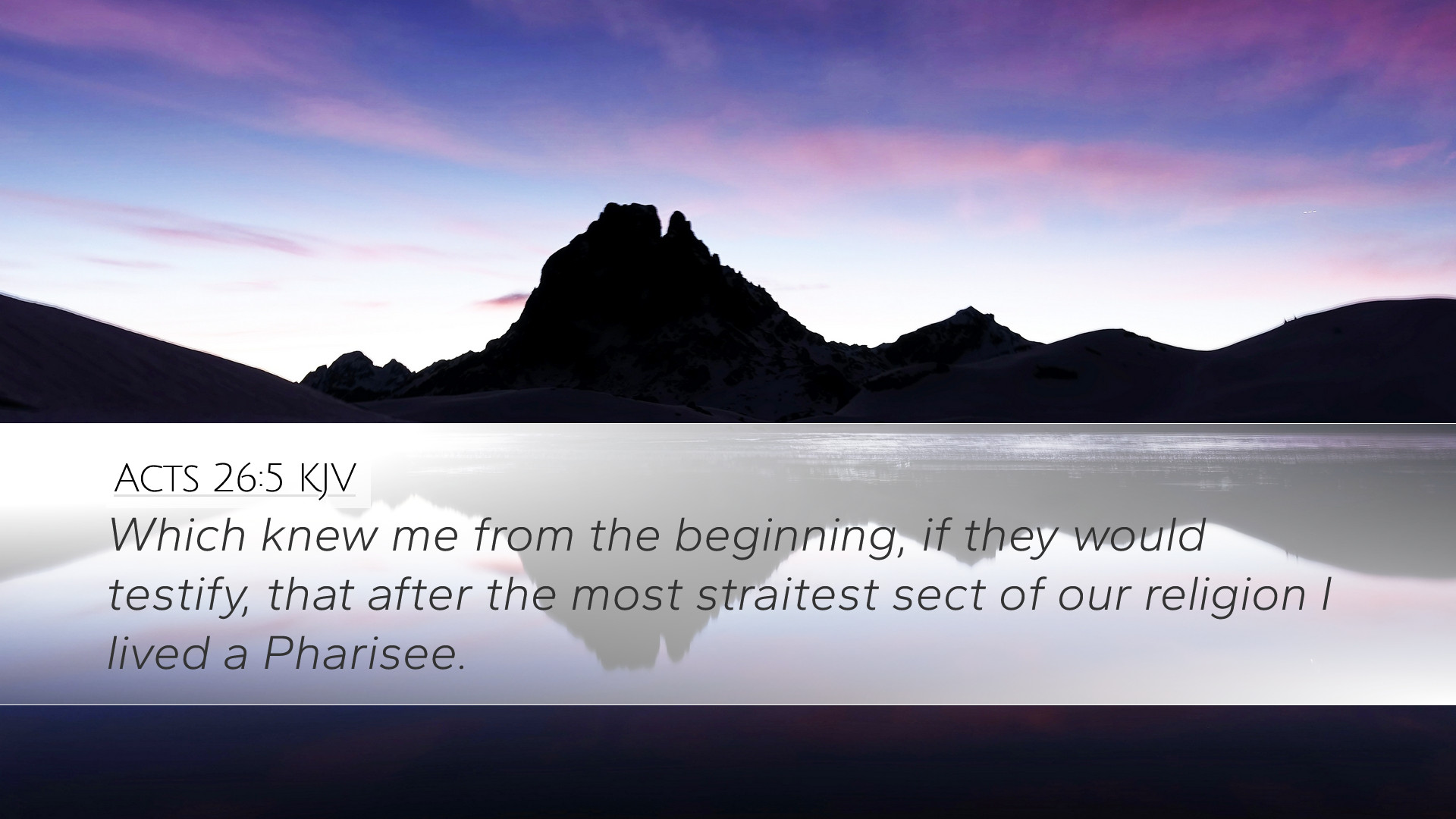Commentary on Acts 26:5
Verse Context: Acts 26:5 states, "Which knew me from the beginning, if they would testify, that after the most straitest sect of our religion I lived a Pharisee." This verse forms part of Paul's defense before King Agrippa, highlighting his former life as a Pharisee and his deep-rooted Jewish faith.
Historical Background
The Apostle Paul, formerly known as Saul of Tarsus, was a devout Pharisee and a zealous persecutor of Christians. This background provides critical context for understanding Paul's transformation and his subsequent mission to preach the Gospel.
Commentary Insights
Matthew Henry's Commentary
Matthew Henry emphasizes Paul's appeal to the testimony of those who knew him from his youth. He observes that Paul was not merely recounting his past but was using it as a basis for his present testimony. Henry writes:
- “It is a powerful argument when a man can appeal to his own conversion and the witness of his former associates.”
- “Paul's acknowledgment of his Pharisaical background underlines the radical change the Gospel has wrought in his life.”
Henry elaborates on the straitness of the sect, indicating that the Pharisees were known for their strict adherence to the Law and traditions, which highlights the seriousness of Paul's former commitments.
Albert Barnes' Commentary
Barnes provides a detailed exposition of the term "Pharisee." He notes:
- “The Pharisees were a religious sect that was very strict in the observance of the Jewish law, as well as in their traditions.”
- “Paul’s identity as a Pharisee gives him credibility, as he was well-versed in the Scriptures and the Jewish law.”
Moreover, Barnes highlights the significance of Paul's statement about those who could testify about his life. He suggests that:
- “Their testimonies could affirm Paul’s integrity and zeal, which makes his transformation more profound and notable.”
This is not merely an assertion of faith; it is backed by a life that was thoroughly committed to his previous beliefs.
Adam Clarke's Commentary
Clarke adds a critical examination of the phrase "from the beginning." He differentiates that this indicates:
- “From his youth and the very early stages of his life, he was known among the Jews as a zealous Pharisee.”
He continues by pinpointing the societal implications of being a Pharisee:
- “As a Pharisee, Paul represents the most rigorous and orthodox interpretation of Judaism, underlining the transformational power of Christ in his life.”
- “This background enables Paul to approach the Jewish audience with authority regarding both Scriptures and traditions.”
Theological Implications
Understanding Paul's testimony serves multiple theological implications:
- Transformation: The metamorphosis of Saul the Pharisee to Paul the Apostle exemplifies the power of grace and divine intervention.
- Witness: Paul’s call to witness through personal experience encourages believers to reflect on and share their own faith journeys.
- Unity of the Testimony: The shared witness of those who knew Paul signifies that the truth of the Gospel is affirmed in community and shared experience.
Conclusion
Acts 26:5 stands as a testament to the profound impact of the Gospel on a life that was once opposed to its principles. Insights from Matthew Henry, Albert Barnes, and Adam Clarke encourage readers to ponder personal transformation, the credibility of one’s past experiences as a witness, and the overarching power of God’s grace. Such reflections are essential for scholars, pastors, and students as they navigate both their theological understanding and personal faith journeys.


